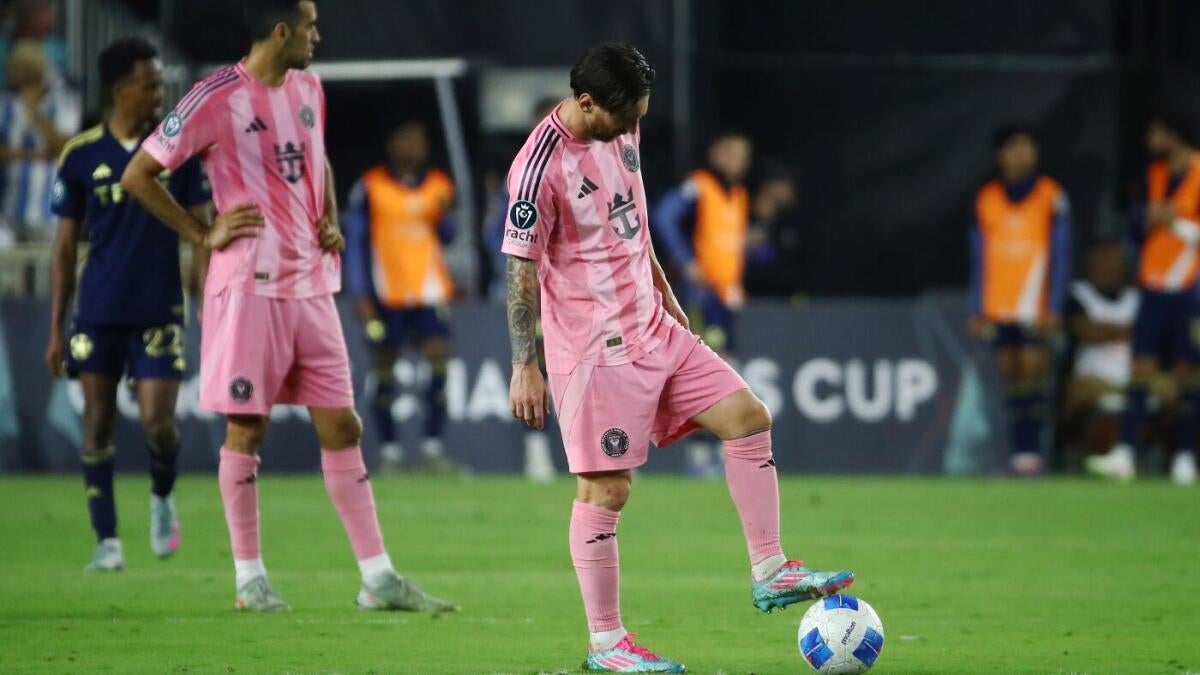“`markdown
Inter Miami’s Turbulent 2024 Campaign: Diagnosing the Early Struggles
A Season of High Hopes and Harsh Realities
Inter Miami entered the 2024 season with sky-high expectations, fueled by the presence of Lionel Messi and ambitions to dominate both domestically and in continental competitions. Yet, the reality has been far from ideal. Stumbling out of the gate with inconsistent performances, defensive frailty, and shocking eliminations, the team finds itself at a crossroads. This analysis delves into the root causes of their struggles, the tactical and psychological hurdles they face, and the path forward for a squad too talented to accept mediocrity.
—
Defensive Woes: A Recurring Nightmare
Fragility at the Back
Inter Miami’s backline has resembled a leaky dam, crumbling under pressure at critical moments. The numbers tell a damning story:
– Conceding Early Goals: Multiple matches have seen Miami fall behind within the first 20 minutes, forcing them into reactive, disjointed play.
– Set-Piece Vulnerability: Opponents have exploited disorganization during corners and free kicks, a basic flaw for a team with playoff aspirations.
– Transition Defense: Counterattacks have sliced through Miami’s midfield like butter, exposing a lack of pace and positional discipline.
The loss to FC Dallas was a microcosm of these issues—individual errors, poor communication, and a failure to track runners left them chasing the game.
Tactical Missteps
Coach Tata Martino’s system, which relies on fullbacks pushing high, has left center-backs isolated. The lack of a true defensive midfielder to shield the back four (a role once filled by the likes of Sergio Busquets, now showing his age) has compounded the problem. Opponents have targeted the space between Miami’s lines, forcing turnovers and launching rapid counters.
—
The Concacaf Debacle: A Wake-Up Call
Vancouver Whitecaps’ Blueprint
The Concacaf Champions Cup elimination wasn’t just a loss—it was a humiliation. Vancouver, a team with far less star power, executed a pragmatic, physical game plan:
– Pressing Miami’s Build-Up: Vancouver disrupted Miami’s attempts to play out from the back, forcing rushed long balls that played into their hands.
– Exploiting Wide Areas: Miami’s fullbacks, caught too far forward, left gaps that Vancouver’s wingers exploited ruthlessly.
– Psychological Edge: The Whitecaps played with a chip on their shoulder; Miami, meanwhile, seemed to expect victory by reputation alone.
Messi’s post-match comments (“an ugly and strange saga”) hinted at deeper frustration—a team out of sync, lacking the grit required in knockout football.
—
Messi’s Integration: A Work in Progress
The Superstar Paradox
Messi’s arrival was supposed to be a game-changer, but his brilliance hasn’t translated into consistent team success. Why?
– Over-Reliance on Individual Magic: Too often, Miami’s attack devolves into “give it to Messi and hope.” Opponents have adapted, doubling up on him and forcing others to step up—which hasn’t happened.
– Off-Ball Movement: Messi thrives with players making intelligent runs (à la Alba and Pedraza at Barcelona). Miami’s static attacking movements have made it easier for defenses to contain him.
– Defensive Liability: At 36, Messi’s defensive contributions are minimal. In a league as athletic as MLS, this puts extra strain on his teammates.
The Supporting Cast
Beyond Messi, Miami’s roster lacks depth. Injuries to key players (like Jordi Alba) have exposed a thin bench, while others (Sergio Busquets, Luis Suárez) are clearly in decline. The front office’s “galácticos” approach has left the squad unbalanced—too many aging stars, not enough young legs.
—
The Road to Redemption: What Must Change?
Immediate Fixes
Long-Term Adjustments
– Squad Overhaul: The team must invest in younger, hungrier players who can complement Messi’s twilight years.
– Identity Shift: Miami must decide: are they a possession-based team or a counterattacking side? Currently, they’re stuck between identities.
– Mental Toughness: The Concacaf loss revealed a soft underbelly. Leadership—from Martino, Messi, and veterans—must instill a killer instinct.
—
Conclusion: A Test of Character
Inter Miami’s 2024 season is far from lost, but the margin for error is shrinking. The early struggles have exposed systemic flaws, but they’ve also provided a clear roadmap for improvement. Defense must become a priority, Messi’s supporting cast must rise to the occasion, and the team must develop a harder edge.
History remembers teams that adapt, not those that make excuses. For Inter Miami, the time for adaptation is now. The Herons have the talent to soar—but only if they address the cracks before the foundation crumbles.
“`











